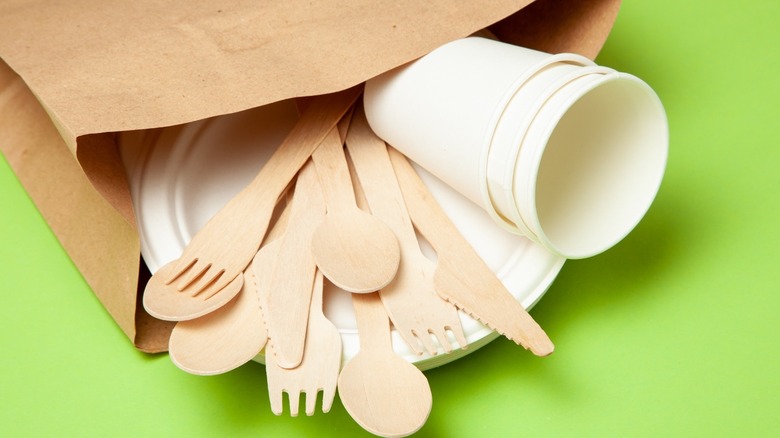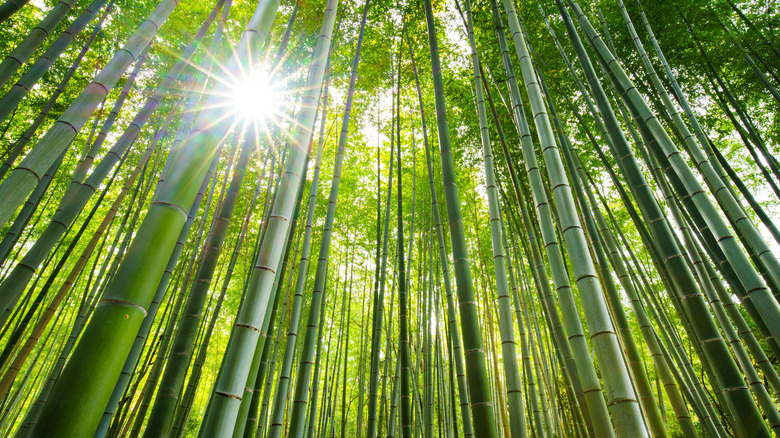What Makes Bamboo Packaging A Great Food Storage Alternative
As plastic food packaging becomes increasingly pervasive, so does the growing concern about its negative environmental impact. Plastic packaging may be cost-effective and easy to produce, but let's face it, plastic pollution is one of the world's "most pressing environmental issues," harming oceans, animals, and drinking water for humans, according to National Geographic. And that's not to mention plastic leaching, which also poses a threat to consumers' health.
"Plastic packaging is diverse and made of multiple polymers and numerous additives, along with other components, such as adhesives or coatings," and it also carries "substances used during manufacturing," reads a report in the National Library of Medicine. Imagine all that and more subtly melting into your food when you reheat leftovers in a plastic container. Pretty gross. Alas, plastic is literally everywhere, so while not completely avoidable, there are better options out there to help minimize the damage.
More and more companies, like Planters and Whole Foods, are pushing for better, more eco-friendly alternatives for their packaging needs and striving to eliminate heavy plastic usage in favor of sustainability. Bamboo is one such alternative that has certainly caught the attention of the food industry in recent years. Using this ultra-durable, easily renewable material as a means to store your food comes with lots of great benefits that might have you considering making a few changes to your kitchenware.
Bamboo is durable, heat-resistant, and renewable
Why utilize bamboo as food packaging instead of plastic? For starters, this giant member of the grass family is naturally antibacterial and biodegradable, as opposed to its toxic opponent. Other categories in which bamboo wins out, according to bamboo products brand Boonboo, are in its flexibility and sheer durability. "One of the strongest natural materials on Earth," bamboo is sturdy enough to stand up to steel, brick, and concrete. Plus, the seepage of fossil fuel chemicals that you get with plastic becomes non-existent when using bamboo.
Top that all off with bamboo's ability to grow wildly fast, sprouting up to 3 feet per day and ready to harvest in as little one to five years (via Eco & Beyond), and it's as renewable as it gets. There are also much cleaner, greener processes involved when creating reusable bamboo food packaging as opposed to plastic. According to Good Start Packaging, disposable utensils made from this super plant are created using the plant's sheath, while reusable utensils are made by turning the whole plant into a powder and then shaping it. These products can be used more than once, but they also won't take centuries to decompose if you throw them away, like plastic does. It's clear that this incredible plant has a wide range of potential uses, making it one of the most versatile and eco-friendly materials out there, especially when used around food.

